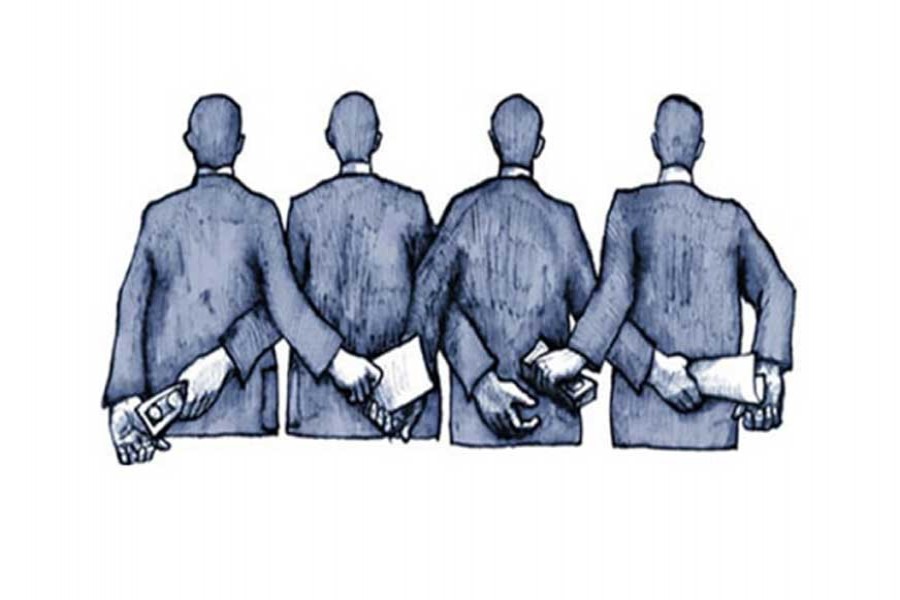Corruption is so widespread in society and the administration that it has been accepted by the public as a fact life. Notwithstanding this, what a recent household survey conducted by the Transparency International, Bangladesh (TIB) on corruption in the government's different service-oriented organs has come up with is in a word revealing. The report of the TIB survey, for example, shows that more than 79 per cent of the people who yielded to the unjust demand for bribe did not make any complaint against the offending corrupt elements in the administration. And 55 per cent of those victims said that they did not complain because they wanted to avoid any harassment or hassle. Interestingly, 49 per cent of the victims of corruption did not complain because to them it (corruption) was the order of the day. But there were still the19.5 per cent who refused to take it all lying down and so lodged complaint against the bribe-takers.
Evidently, resistance to corruption in society has weakened markedly as an overwhelming number of the victims has accepted corruption as a fact of life. This simply points to the helplessness of the common people before the power of corruption in society and the government. Consider the case of the law-enforcement agencies. The survey report on corruption in this sector is indeed disconcerting. For, to go by the survey report, in 2021, (the survey period was from December 2020 to November 2021), the different law-enforcement departments topped the list of the three government organisations found to be most corrupt including the passport office and the Bangladesh Road Transport Authority (BRTA).
In fact, more than 74 per cent of the surveyed households reported that they were victims of corruption at the hands of the law-enforcement agencies. And then came the passport department, the BRTA, the judicial service, healthcare, local government and land administration in that order. As expected, the weaker the service-seekers were in terms of their age, gender and physical abilities, the greater was their risk of being exploited by the potential service-giver. So, it is hardly surprising that aged people (between 56 and 65 years of age) received the worst treatment from the supposed service providers, while the younger ones (between 18 and 35 years) were treated less aggressively perhaps due to their rebellious nature. But if the clients were differently able, they in most cases had to fend for themselves.
This TIB survey is obviously a sad commentary on the image of the most important wings of the government supposedly dedicated to the cause of public service. Again, according to current TIB study, the rate of corruption in the government bodies under scrutiny has increased to 70.8 per cent from 66.5 per cent as it was found in the case of previous survey done by the corruption watchdog in 2017. The fallout from this ever-rising level of corruption is that it has thrown a spanner in the works of the government's every effort at achieving its desired goal of sustainable development.
The existing situation calls for identifying the social malaise, corruption, as the public enemy number one and making renewed efforts to rid various government agencies of this cancer. However, it will require strong political will from the top for the government to launch a meaningful drive against corruption. In this context, the Anti-Corruption Commission (ACC) should be allowed to play its part by making it independent in the real sense of the term.


